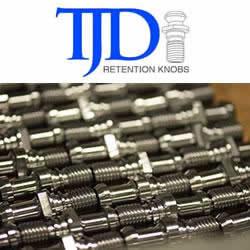Company moves bucket manufacturing to UK
Materials handling expert Gough Engineering has invested in high quality, high pressure injection moulds to manufacture components for its Swinglink range of bucket conveyors in the UK. The decision allows the Staffordshire based company to improve moulds using the latest technology, protect future supplies and secure UK manufacturing costs given the varying exchange rates after recent political events.
The buckets are produced by local sub-contractors, who use injection moulding techniques to produce perfectly moulded buckets that fit into Gough Engineerings patented bucket elevators. These parts were previously produced by Gough Econ Inc in Charlotte, USA.
The buckets are available in a range of colours and sizes to match a factorys existing machinery and can also be produced from metal detectable plastic. This is often a requirement in the food manufacturing industry, where metal detectors are used to detect contaminants in the food chain.
Bucket elevators are used in a factory as part of a conveying system to move products vertically or horizontally. They are used to transport products around a factory without damage, keeping them still and contained without risk of degradation during movement.
Gough Engineering offers Swinglink and Econ-o-Lift bucket elevators, which both incorporate a patented design of chain and pendulum systems. The buckets are interlinked and provide a continuous conveying surface, avoiding spillages during the input of the material. The Swinglink elevators form a continuous row of overlapping buckets that allow for multiple outlet systems, offering versatility in a busy factory with many production lines.
"The currency fluctuations following Brexit made it economically unfeasible for us to continue importing the 24" buckets for our elevators from the USA," explained Stephen Harding, managing director of Gough Engineering. "However, the demand for new bucket elevators and the need to support our significant installed and operation plant base with parts and service meant that we were able to increase our UK investment.
"Compared to incline conveying systems, products are better protected against contamination and damage when they are moved using bucket elevators. On incline conveyors, products may roll back into each other and degrade against static edges causing damage and leading to more waste product. Our elevators allow complex configurations to be managed by a single low energy machine. This enables plant managers to reorganise the layout of their existing facilities to maximise space."
The range of Econ-o-Lift bucket elevators consists of heavy-duty systems designed to convey coarse and abrasive products through harsh production environments. The buckets are protected from contamination by a solid casing on the elevator, which may be removed for cleaning or maintenance.
Gough Engineering also provides bucket conveyors for horizontal production lines. These allow products to be collected during loading using multiple inlet positions and can discharge to multiple outlets.
Plant managers looking to find out more about Gough Engineerings bucket elevator systems can contact the company on 01782 567770 or visit www.goughengineering.com.
Featured Product

